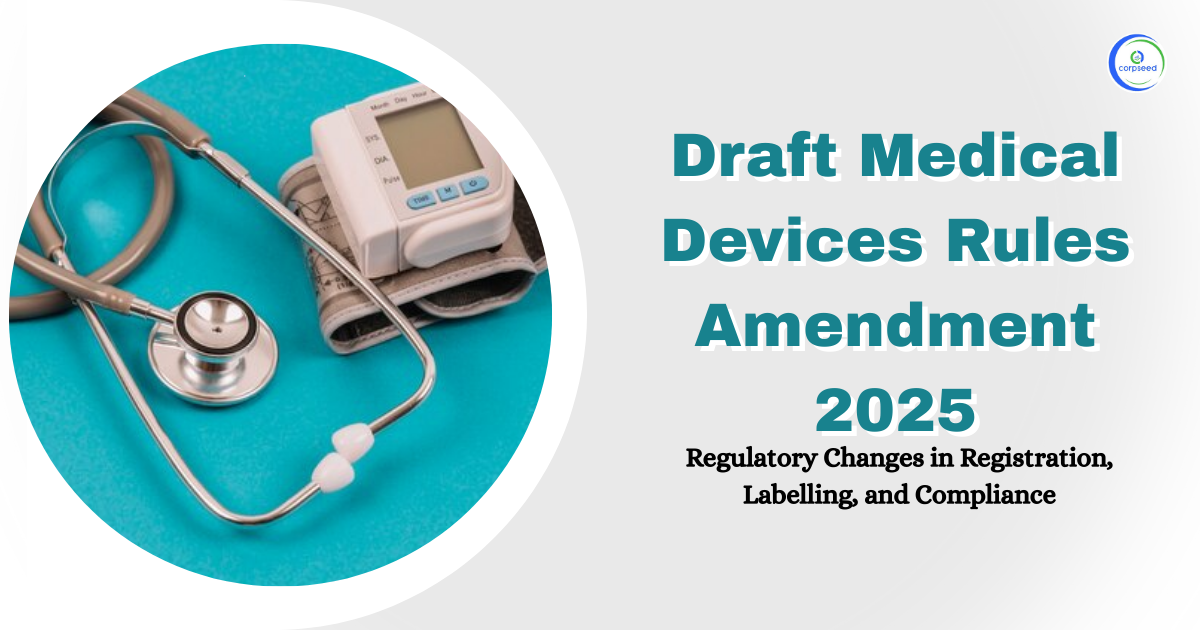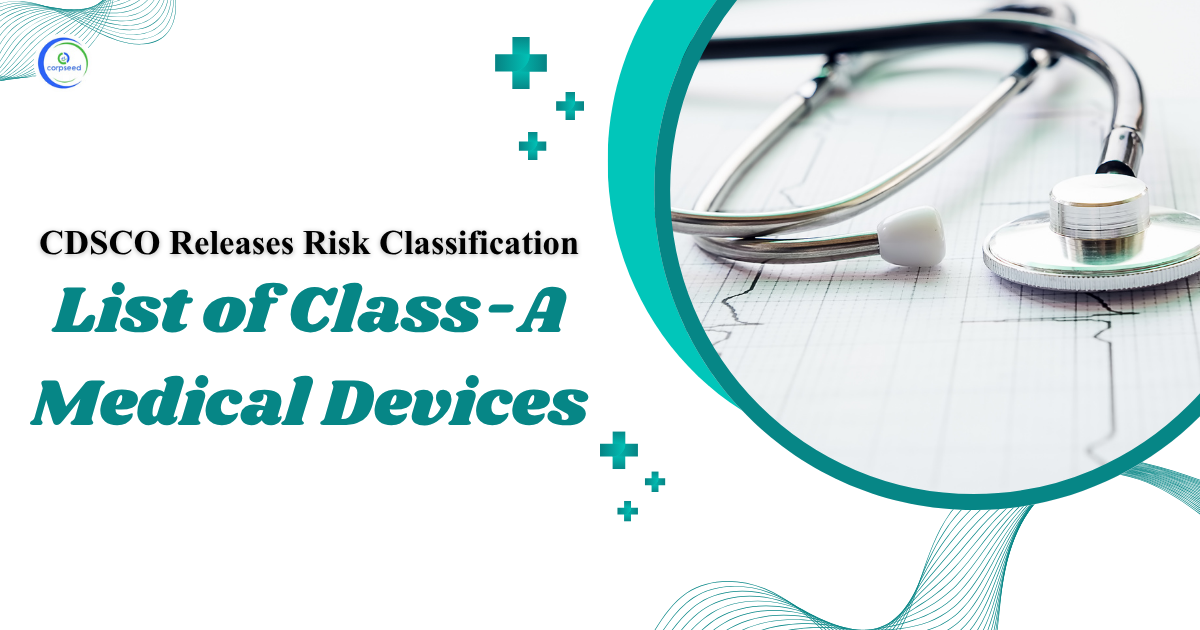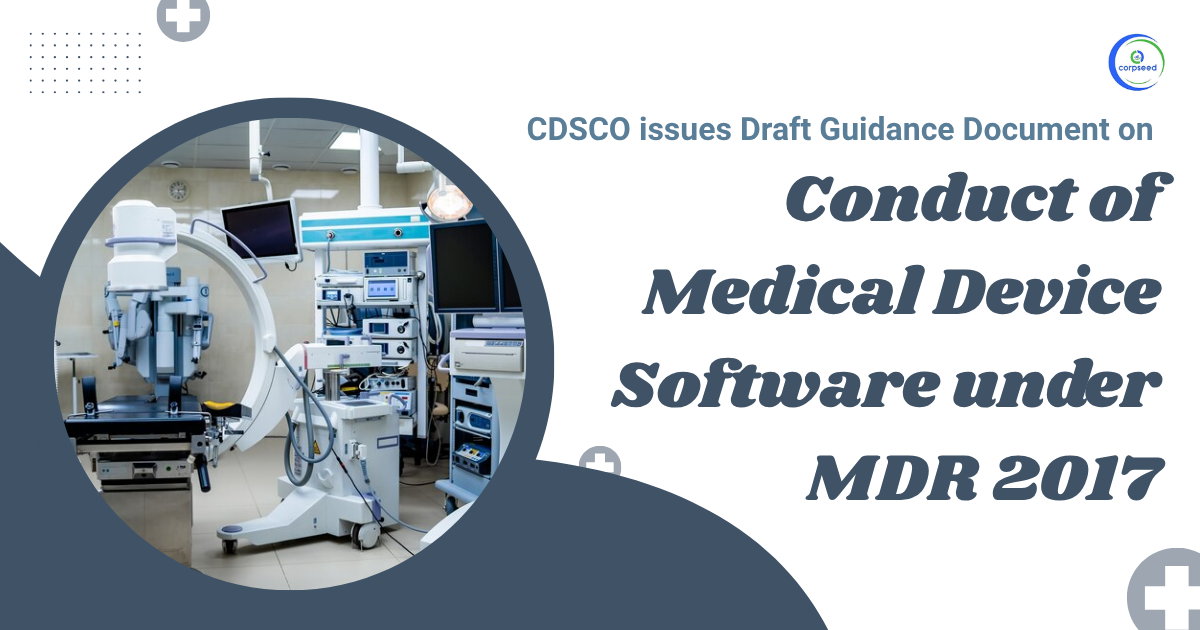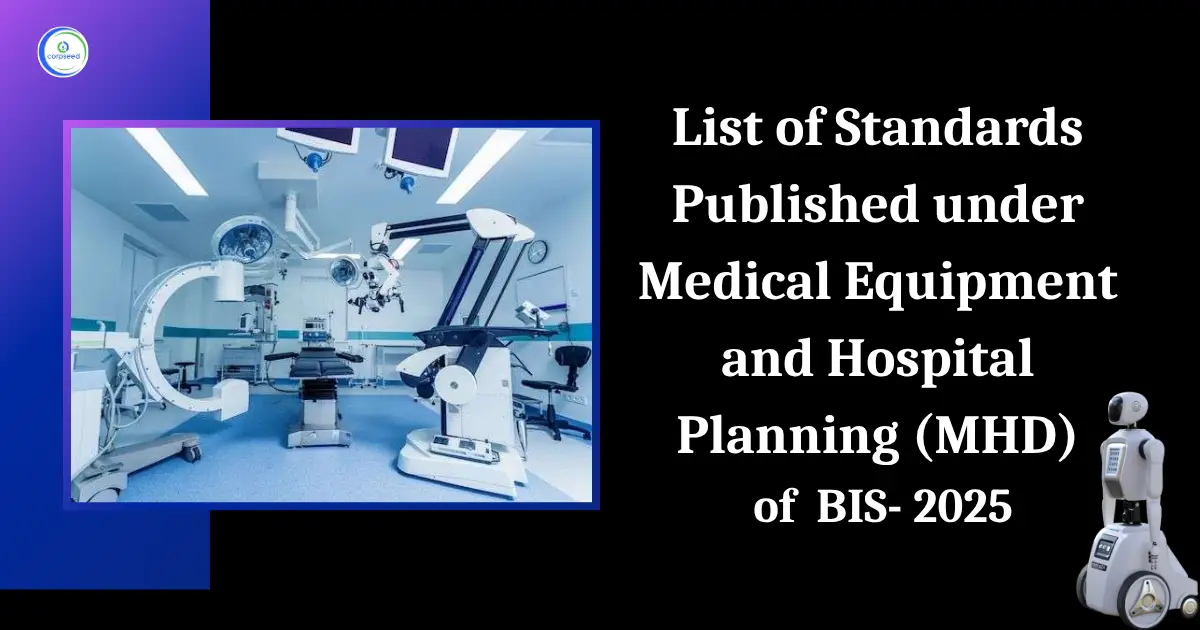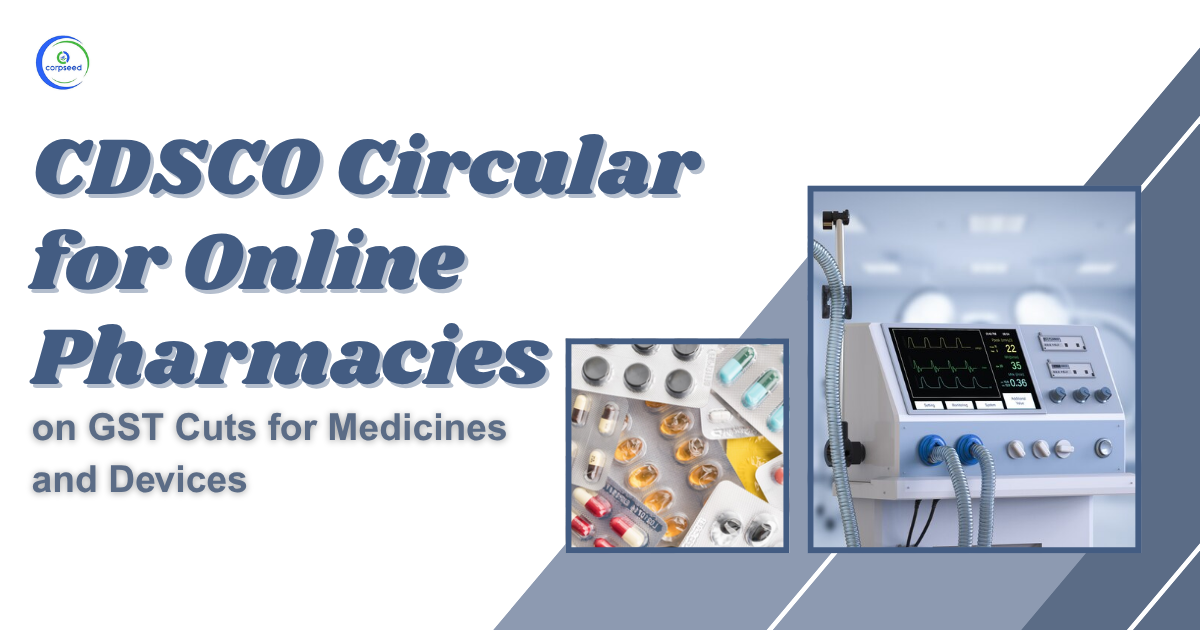Introduction
The Drugs and Cosmetics Act of 1940 regulates the pharmaceutical industry in India including the manufacturing, sale, distribution and consumption of drugs, medical devices and other products used in the medical sector. This legislation is from the pre-independence era and needs rectifications as per the contemporary situation in the country and technological advancements. To overcome the shortcomings of this outdated law, the government of India has introduced the draft of the Drugs, Medical Devices and Cosmetics Bill in 2022. It rewrites various provisions of older legislation and adds new sections to address the newly developed regulatory and administrative concerns in the medical industry. Let’s dive deep into the Drugs, Medical Devices and Cosmetics Bill 2022.
Table of Contents
- Introduction
- Understanding the Drugs, Medical Devices and Cosmetics Bill 2022
- Highlights of the Drugs, Medical Devices and Cosmetics Bill 2022
- Key Provisions under the Drugs, Medical Devices and Cosmetics Bill 2022
- Administrative Bodies under the Drugs, Medical Devices and Cosmetics Bill 2022
- Conclusion
--------------Blog Contact Form-------------
Understanding the Drugs, Medical Devices and Cosmetics Bill 2022
The Drugs, Medical Devices and Cosmetics Bill 2022 seeks to amend and consolidate laws regarding the business activities concerning drugs, medical devices and cosmetics such as import, manufacture, distribution, and sale. To ensure the quality, safety, efficacy, and performance of drugs, clinical trials of new drugs, and clinical investigation of investigational medical devices. The change in this legislation will affect manufacturers, importers, distributors and sellers of these medical products.
Highlights of the Drugs, Medical Devices and Cosmetics Bill 2022
The highlights of the new drugs, medical devices and cosmetics bill of 2022 as as follows-
- Technical Advisory Board for Drugs and Medical Devices
- Drugs Laboratory and Medical Device Testing Centre
- Constitution of Consultative Committee
- Provisions of Drug Controller, Medical Device Officers and Medical Device Testing Officer
- Central and State Licensing Authority
- Import Provisions for Drugs and Cosmetics
- Manufacturing, Sale, and Distribution of Drugs and Cosmetics
- Provisions Relating to Ayurveda, Siddha, Sowa Rigpa, Unani, And Homoeopathic Drugs
- Regulation of Medical Devices
- Clinical Investigation Procedure
Key Provisions under the Drugs, Medical Devices and Cosmetics Bill 2022
The major provisions of the Drugs, Medical Devices and Cosmetics Bill 2022 are as follows-
Provisions Relating to Drugs and Cosmetics
The new Drugs, Medical Devices and Cosmetics Bill 2022 prescribes importers and manufacturers to import or manufacture drugs and cosmetics based on the standards so prescribed under the legislation. Drugs and Cosmetics shall not be of substandard quality. Apart from the mandatory compliance with the mentioned standards, the drugs and cosmetics shall also not be misbranded, adulterated and spurious. Some other necessary conditions to be followed for the import, sale, manufacturing and distribution of drugs and cosmetics are separately prescribed under the new drugs, medical devices and cosmetics bill of 2022 which include the necessary licences for specific drugs and cosmetics, labelling requirements, cosmetics containing harmful ingredients etc.
Provisions Relating to Ayurveda, Siddha, Sowa Rigpa, Unani And Homoeopathic Drugs
The term ‘Ayurveda, Siddha, Sowa Rigpa or Unani or drug’ refers to medicines meant for internal or external use in diagnosing, treating, mitigating, or preventing diseases in humans or animals. These medicines must be manufactured exclusively according to the formulations outlined in the authoritative books of Ayurvedic, Siddha, Sowa Rigpa, and Unani Tibb systems of medicine. To regulate this specific category of medicines the bill prescribes a separate Technical Advisory Board, Consultative Committee, Scientific Research Board, and Laboratories at Central and State Level. The bill promotes the usage and better administration of medicinal plants and prescribes the constitution of the Medicinal Plant Board and Regional Cultivation and Facilitation Centre for Medicinal Plants.
Provisions Relating to Medical Devices
The bill prohibits the import, manufacture, and sale of devices that don't meet quality standards, are misbranded, adulterated, or spurious. Exceptions exist for small quantities used for testing or personal use. There are also provisions for mandatory licences for various activities related to medical devices, with the Central Government having the authority to permit certain imports or manufacturing under specific conditions. Notified bodies are responsible for certifying devices according to prescribed procedures to ensure public health and safety.
Provisions Relating to Clinical Investigation
The bill mandates that clinical investigations on investigational medical devices require permission from the Central Licensing Authority under prescribed conditions. The Central Licensing Authority may, in the public interest, modify or waive the need for clinical investigations. Devices claiming substantial equivalence to a predicate device must obtain approval before marketing, demonstrating comparable safety and effectiveness. The Ethics Committee for clinical trials shall also serve as the ethics committee for clinical investigations as prescribed under new drugs, medical devices and cosmetics.
Administrative Bodies under the Drugs, Medical Devices and Cosmetics Bill 2022
To regulate the manufacturing and import of drugs, medical devices and cosmetics including ayurveda products, the government has prescribed the constitution of various authorities under the Drugs, Medical Devices, and Cosmetics Bill 2022. The major entities that will be monitoring the activities relating to the drugs, cosmetics and medical devices and issuing necessary permissions are as follows-
Constitution of Technical Advisory Board
The Central Government established the Drugs Technical Advisory Board to provide technical advice on drugs and cosmetics. The Board's composition includes members from health services, drug control, pharmaceutical industries, academia, and research institutions, among others. It advises both Central and State Governments and performs functions assigned by the Act. A separate Technical Advisory Board is also constituted on similar terms for the medical devices.
Drugs Laboratory and Medical Device Testing Centre
The Central Government establishes Central Drugs Laboratories and Central Medical Devices Testing Centres for testing, analysis, and other designated functions related to drugs, cosmetics, and medical devices. Similarly, the State Government can establish State Drugs Laboratories and State Medical Devices Testing Centres. The reports, forms, and fees for samples and reports from these laboratories and centres are to be determined as prescribed by regulations.
Role of Consultative Committee
The Central Government is mandated to establish a consultative committee known as the Drugs, Medical Devices and Cosmetics Consultative Committee. This committee is designed to offer advice on matters aimed at ensuring consistency in the administration under the act and associated rules across the country. The Drugs Controller General, India, serves as the committee's Chairperson. The committee comprises representatives nominated by the Central Government and each State Government, specifically individuals responsible for or involved in the regulation of drugs, medical devices, and cosmetics in their respective states. The committee convenes at the discretion of the Central Government, but at least once every six months, and has the authority to regulate its procedures.
Appointment of Drugs Control Officers
The Central or State Government can appoint Drugs Control Officers, with prescribed qualifications and experience. These officers are assigned specific areas of responsibility. Individuals with a financial interest in the drug or cosmetic industry cannot be appointed as Drugs Control Officers. These officers are considered public servants and operate under a designated controlling authority with specified qualifications and experience. Those previously appointed as Inspectors under the Drugs and Cosmetics Act, of 1940, are automatically deemed Drugs Control Officers under this Act and continue their functions.
Designation of Medical Device Officer and Medical Device Testing Officer
The Central or State Government can appoint Medical Devices Testing Officers and Medical Devices Officers through official notifications. These officers must have prescribed qualifications. Financial interests in the import, manufacture, or sale of medical devices disqualify individuals from these positions. Those appointed or designated under the Drugs and Cosmetics Act, of 1940, before this Act's commencement, automatically become Medical Devices Testing Officers or Medical Devices Officers and continue their functions. These officers are considered public servants and operate under a controlling authority with specified qualifications and experience.
Licensing Authority
The Drugs Controller General of India serves the purpose of the Central Licensing Authority and is appointed by the Central Government through official notifications. Similarly, the State Government appoints the State Drugs Controller, which serves as the State Licensing Authority. Officers appointed to these positions must possess prescribed qualifications and experience.
Conclusion
In conclusion, the Drugs, Medical Devices, and Cosmetics Bill of 2022 marks a significant leap toward modernising India's pharmaceutical and medical industries. Addressing the limitations of the outdated 1940 Act, this legislation introduces vital reforms, encompassing advisory boards, testing centres, and regulations for drugs, cosmetics, and medical devices. Key provisions include the establishment of licensing authorities, prohibition of substandard products, and ethical considerations in clinical trials. The bill reflects India's commitment to advancing healthcare standards and adapting to technological progress. As these reforms unfold, they promise an improved regulatory environment, ensuring product quality and safeguarding the well-being of consumers. The Drugs, Medical Devices, and Cosmetics Bill of 2022 signifies a new era for India's healthcare sectors, fostering better governance and bolstering confidence in the products vital to the nation's health.
This portion of the site is for informational purposes only. The content is not legal advice. The statements and opinions are the expression of author, not corpseed, and have not been evaluated by corpseed for accuracy, completeness, or changes in the law.
BOOK A FREE CONSULTATION
Get help from an experienced legal adviser. Schedule your consultation at a time that works for you and it's absolutely FREE.




